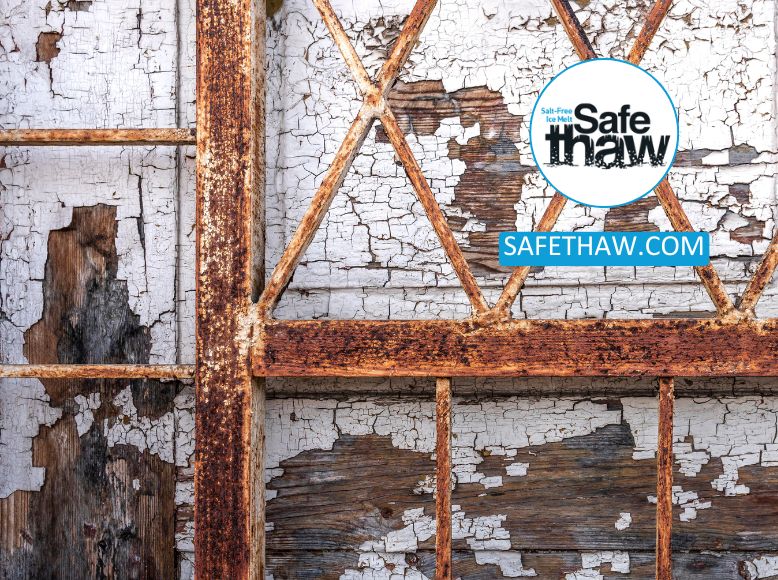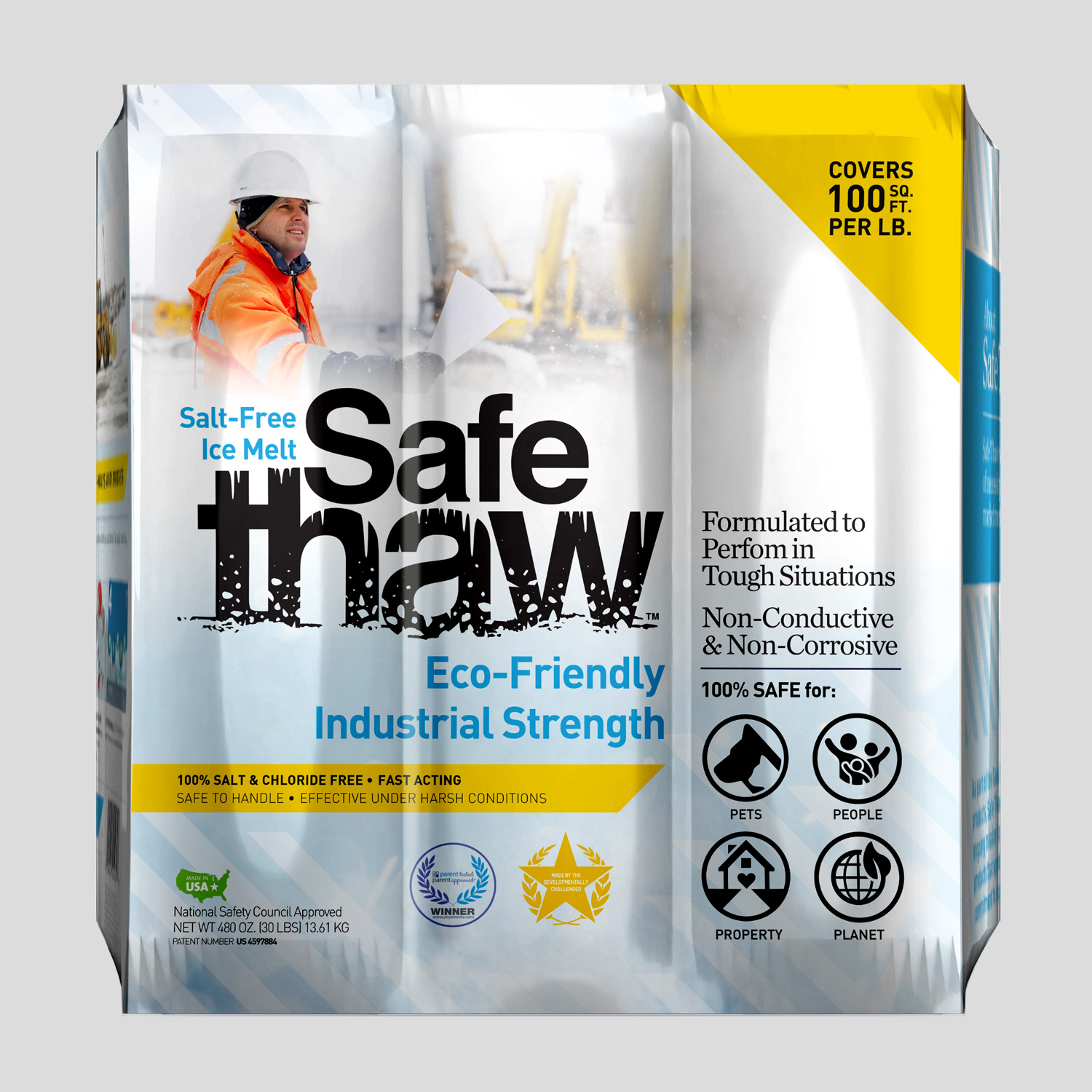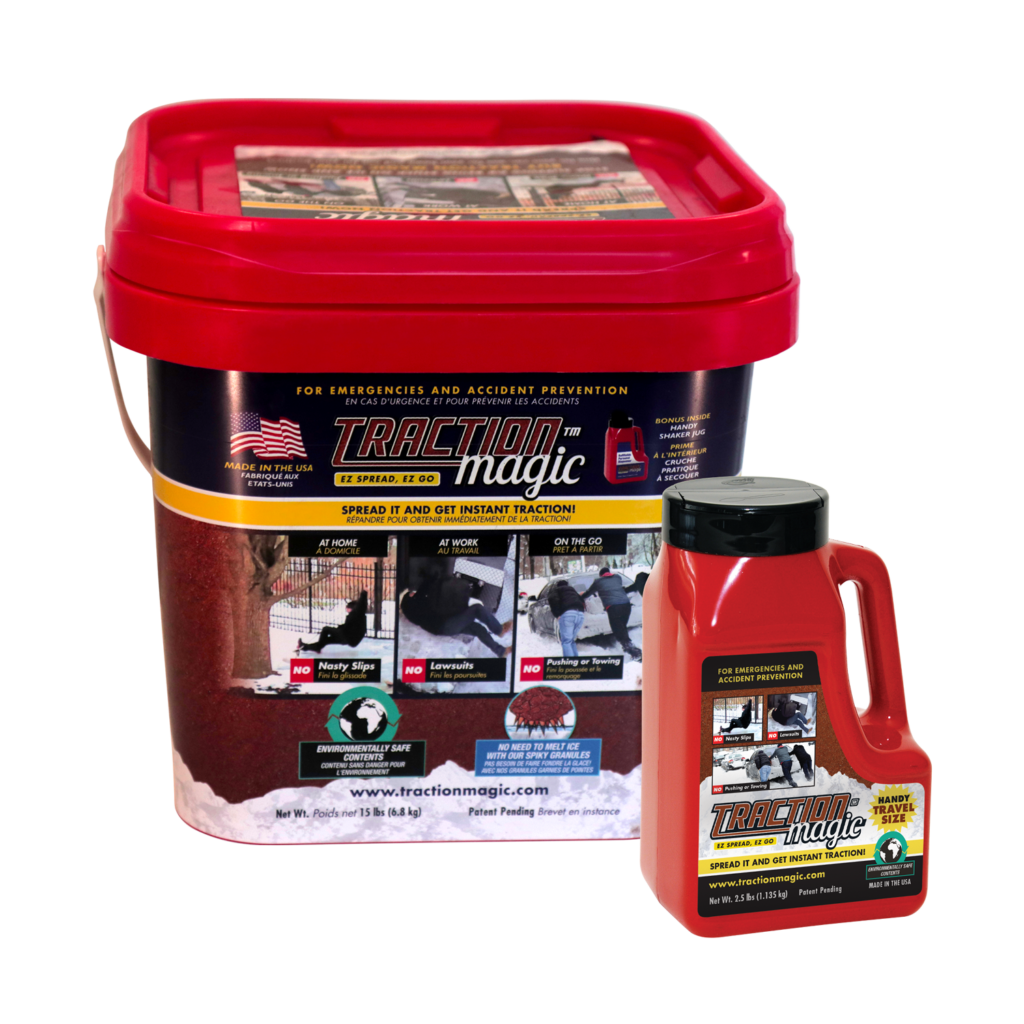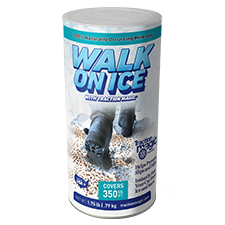How To Protect Your Property From Rusting In The Snow?
how to prevent rusting in snow

Winter weather can be brutal, but it’s not just the cold that you should be concerned about. Other risks accompany the onslaught of snow and ice, which can persist even after the ice has melted. Protecting your property as a business owner is a primary priority. Winter, unfortunately, may inflict significant damage to some of your most valuable belongings.
However, if you have a good plan in place for protecting your vehicles and business equipment throughout the winter, you may avoid a lot of costly repairs. By a safe ice melt that is non-corrosive, you can keep your premises free from snow accumulation and damages.
How Winter Contributes to Rust?
Winter creates ideal conditions for rust formation. Here’s how:
- Snow and Moisture: Snow is frozen water, and as it melts on surfaces exposed to the elements, it provides the moisture necessary for rust to form.
- Salt and De-Icing Agents: Salt and chloride compounds are extensively used to melt snow and ice on roads and sidewalks. These substances can splash onto your vehicles and metal possessions, increasing the risk of rust.

Ways To Prevent Rusting
Iron oxide forms when oxygen in water molecules reacts with iron. Rust is iron oxide in its purest form. Cars, gates, tanks, and other steel or iron-containing metal forms must be carefully maintained to avoid iron oxide development, especially in outdoor conditions.
The primary cause of rusting in winter is not only wet conditions but also salt-based ice melt. The chlorides are highly corrosive and can damage metals as well as concrete. Safe Thaw an ice melt like that won’t damage concrete and metal is the ideal choice for business owners and homeowners. Here are some easy methods to prevent rusting.
- Reduce scratching: Water collects in metal scratches or fissures. When this happens, the water stays in contact with the iron, which causes rust. Cold rolled steel resists corrosion better than hot rolled steel because it has a smoother surface with less roughness. The rough surfaces retain and hold water thus, pacing the rusting process. If you find a deep scratch on your ferrous metal surface, you should fix it right away.
- Protective coating of applications: Metal objects, such as tools, outdoor gear, cars, and massive metal pieces, can be protected from rusting with commercially available rust prevention treatments in the form of aerosol sprays or cloth wipes. Consider applying protective coatings to your metal possessions. These coatings act as a barrier, preventing moisture and oxygen from coming into contact with the metal. Common coatings include paint, oil, or specialized rust inhibitors.
- Use a salt-free ice melt: A salt-free and natural commercial ice melt is the safest option for property owners. It is free from harmful chemicals and will not corrode your machinery, vehicles, or other metal. It can be safely used on all surfaces. Moreover, it also includes traction, thus reducing slip and fall incidents in your premises.

Blizzards Are Here—Stock Up on Safe Thaw Today!
Safe Thaw was created as the ice management solution for tough winter environments. Ideal in commercial and industrial properties, shops, government agencies, bridges, and construction.
- Use Rust Inhibitors: Rust inhibitors are chemicals designed to slow down the rusting process. They can be applied as sprays or coatings. It’s essential to choose inhibitors that are safe for the environment and suitable for your specific application.
- Keep Metal Surfaces Dry: The most effective way to prevent rust is to keep metal surfaces dry. Here’s how:
- Cover or Store: Whenever possible, keep your metal items covered or stored in a dry place during winter.
- Regularly Wipe Dry: For vehicles and other metal possessions exposed to the elements, regularly wipe them dry to remove snow and moisture.
- Choose Rust-Resistant Materials: When purchasing new items, consider materials that are naturally rust-resistant. Stainless steel, for example, is highly resistant to rust due to its chromium content.
- Regular maintenance: Because rust spreads quickly, scraping it off as soon as it emerges is critical. Scrub with warm water and soap after scraping, and treat with a metal conditioner or other protective coating to prevent additional oxidation. Apply a fresh coat of paint to the area if necessary.
Winter Storms Are Here!
Stay Safe with Our 100% Salt And Chloride-Free, Pet Safe Ice Melt.
Using Safe Thaw: An Eco-Friendly Solution
Hope you have a better idea on how to prevent rust in winter . While protecting your metal possessions from rust is crucial, it’s also important to consider the environmental impact of de-icing agents used in winter. Traditional salt and chloride compounds can contribute to environmental damage and further accelerate rusting on your belongings.
This is where Safe Thaw comes into play. Safe Thaw is a chloride-free industrial, non-corrosive ice melt for steel and other surfaces. Safe Thaw is not only effective at melting ice and snow but is also environmentally friendly. Here are some reasons why Safe Thaw is an excellent choice:
- Chloride-Free: Safe Thaw does not contain harmful chlorides that can accelerate rust formation on metal surfaces.
- Safe for Pets: It is safe for pets and won’t harm their paws.
- Safe for Concrete: Safe Thaw is non-corrosive and safe for use on various surfaces, including concrete, without causing damage.
- Fast-Acting: Its patented dual-effect formula quickly breaks surface tension and melts ice, making it highly effective.
100% Salt & Chloride-Free Ice Melt for Winter Storm Protection.
Conclusion
Ice melt comes in many chemical compositions. Some of which are better suited for specific surfaces than others. To avoid ice melt corrosion, think about what your building’s external walkways are made of and the areas susceptible to salt damage. If ice melt is not used properly, it can damage the wood, metal, asphalt, and concrete surfaces. Opt for a chloride-free ice melt that won’t damage concrete and is non-corrosive. It will minimize rusting of your machinery and vehicle and, you can fulfill your duty as a responsible citizen by choosing a green product.
FAQs
Try Also Our Other Winter Safety Products:
Traction Magic
Stay safe on slippery surfaces with a product that’s 100% natural and safe for pets, people, and your property. Whether it’s sidewalks, steps, or even your car’s traction, Traction Magic is the go-to choice.

Walk On Ice
The handy disposable canister can be taken everywhere, with the same 100% naturally occurring minerals that provide instant traction on ice or snow. Use it on sidewalks, steps, or as an instant traction agent for your car.



